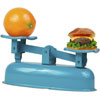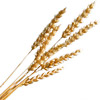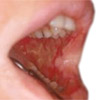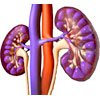Nutrition for Medical Conditions
High cholesterol
 | Both dietary changes and drugs are used in the management of cholesterol levels. In most cases, the dietary approach is the first option, since dietary habits have a great influence on the cholesterol levels of an individual. The guiding principle is to strive for low bad cholesterol and high good cholesterol. |
For more information, see Nutrition for Lowering Cholesterol Levels.
Lactose intolerance
 | Nutrition in lactose intolerance is important, because many lactose intolerance patients control their symptoms by avoiding foods which contain lactose, especially dairy products. Unfortunately, this may put them at risk of calcium deficiency. |
For more information, see Nutrition and Lactose Intolerance.
Gluten intolerance
 | Gluten is a storage protein derived from wheat, barley, rye and a number of other cereals, and thus is commonly found in modern diets. People with an intolerance to gluten, including those with coeliac disease and dermatitis herpetiformis, must follow a gluten-free diet. A gluten-free diet is the only effective treatment for gluten intolerance. |
For more information, see Gluten-Free Diet.
Blood glucose control
 | Glucose levels are measured most commonly to diagnose or to monitor diabetes. Normally, blood sugar levels stay within a narrow range during the day. After you consume food, your blood sugar level will rise and after you have had a night’s rest, they will usually be lowest in the morning. |
For more information, see Blood Glucose Control.
Pain
 | There is a strong relationship between pain and nutrition. Pain is related to a disturbance of functions within our cells, such as can be caused by inadequate levels of omega 3 essential fatty acids and antioxidants. Excessive body weight can also worsen some types of persistent pain. |
For more information, see Pain and Nutrition.
Cancer
 | The nutritional needs of a cancer patient depend on several factors, including the stage of the disease, its symptoms, the treatment used and its side effects, and the effect of the specific cancer on food and nutrient ingestion, tolerance, and utilisation. For many cancer patients, managing nutritional needs while living with advanced cancer is a particular challenge. |
For more information, see Nutrition in Cancer Patients.
Vitamins, supplements and cancer
 | Many cancer survivors use supplements to try to strengthen their immune system, help them to feel better, and to cope with stress. Most believe that there is a benefit in taking dietary supplements. Cancer patients will often home-research various herbal remedies and preparations, and then ask their oncologist whether or not it is all right to take them. |
For more information, see Vitamins, Supplements and Cancer.
Oral mucositis
 | Oral mucositis is a condition caused by cancer treatment in which an individual develops painful lesions of the mucus membranes of the mouth. It can have a devastating effect on a person’s nutritional status, because the oral pain associated with the condition often prevents individuals from eating solid food, and sometimes even from swallowing. |
For more information, see Nutrition and Oral Mucositis.
Dialysis
 | In dialysis patients, the ability of the kidney to get rid of waste products and body fluids is compromised. Consequently, a healthy balanced diet is extremely important. The wellbeing of a dialysis patient depends on taking prescribed medications and on the choice of diet. |
For more information, see Nutrition in Dialysis Patients.
ADHD
 | FAILSAFE stands for Free of Additives, Low in Salicylates, Amines and Flavour Enhancers. The compounds eliminated from the FAILSAFE diet cause adverse reactions in food intolerant individuals, and can also lead to mood disorders, digestive disorders and sleeping problems. The FAILSAFE diet can reduce symptoms of hyperactivity in children with ADHD. |
For more information, see FAILSAFE Diet for ADHD.
More information
 | For more information on nutrition, including information on types and composition of food, nutrition and people, conditions related to nutrition, and diets and recipes, as well as some useful videos and tools, see Nutrition. |
Dates
Tags
Created by:

 Login
Login














